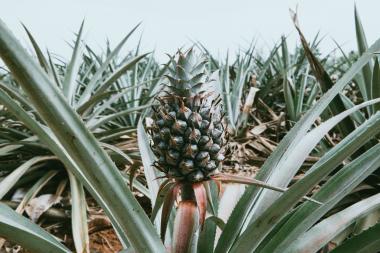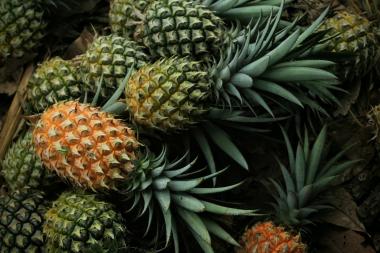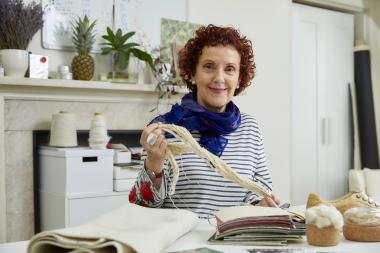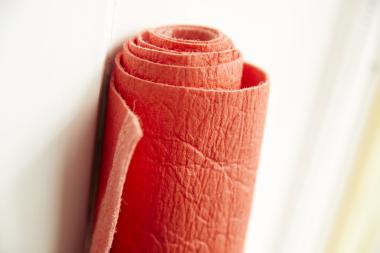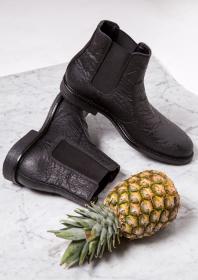Ananas Anam and TENCEL™ collaborate with Calvin Klein
The search for better, planet-friendly footwear material reveals a solution in one unlikely ingredient: pineapple leaves. This unique textile ingredient is the recent focus of the latest footwear design collaboration between Ananas Anam, TENCEL™ and Calvin Klein, launching Calvin Klein’s first-ever trainer featuring a knitted upper made of PIÑAYARN® blended with TENCEL™ Lyocell fibers.
Known as “The Sustainable Knit Trainer”, the trainers are a timeless closet staple, available in classic colors such as black and off-white and etched with the signature Calvin Klein logo. The PIÑAYARN® knit upper, made of 70% TENCEL™ Lyocell and 30% Anam PALF™ pineapple leaf fiber, is both from botanic origin and bio-based.
As the fashion sector has begun to realize the negative environmental effects of synthetic materials, a lot of brands have turned towards plant-based materials such as PIÑAYARN®. Using a low-impact manufacturing process, PIÑAYARN® is derived from pineapple leaf waste and involves a water-free spinning process. The addition of TENCEL™ Lyocell, a fiber made from wood pulp obtained from responsibly managed forests and produced using a solvent spinning process that recycles both the solvent and water at a recovery rate of more than 99%, offers full traceability of the TENCEL™ fiber in the final blended yarn.
Melissa Braithwaite, PIÑAYARN® Product Development Manager at Ananas Anam said “The inspiration for PIÑAYARN® came from the need to provide the textile industry with an alternative to overused, often polluting, conventional fibers, such as cotton or polyester. We have an abundance of available raw material within our business, and broadening our product offering means we can valorize more waste, increasing our positive impact on the environment and society.”
Indeed, as the consumer demand for more eco-responsible textile products and footwear grows, so too has the popularity of wood-based fibers as a material alternative. Ananas Anam and TENCEL™’s collaboration with Calvin Klein has been a success in that the physical characteristics and planet-conscious benefits of both PIÑAYARN® and TENCEL™ fibers complement each other perfectly, creating a blended material that is soft and usable for various woven and knitted applications.
For material developers like Ananas Anam seeking the ideal fiber blend partner to create PIÑAYARN®, TENCEL™ Lyocellfibers are celebrated for their versatility and ability to be blended with a wide range of textiles such as hemp, linen and of course Anam PALF™ pineapple leaf fiber, to enhance the aesthetics, performance and functionality of fabrics. Additionally, beyond being used in shoe uppers, TENCEL™ Lyocell fibers can be used in every part of the shoe including the upper fabric, lining, insoles, padding, laces, zipper and sewing thread. TENCEL™ Lyocell can also be used in powder form for use in the outsoles of shoes.
“We are extremely excited about this collaboration with Ananas Anam for the launch of The Sustainable Knit Trainer by Calvin Klein, an eco-responsible and planet-friendly shoe for conscious consumers. This partnership is the perfect example of our commitment to provide education and expertise to support anyone who chooses to improve the environmental and social credentials of their products by using more responsible materials,” said Nicole Schram, Global Business Development Manager at Lenzing.
Lenzing AG


